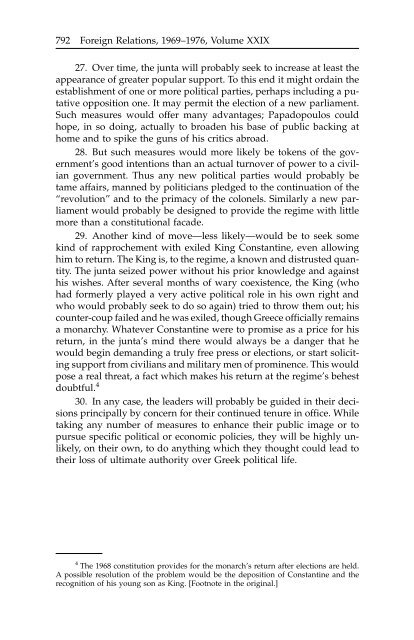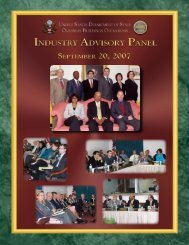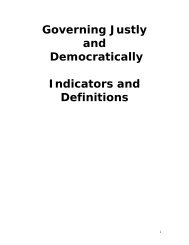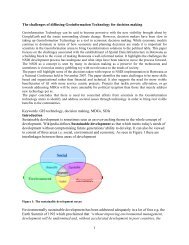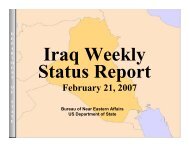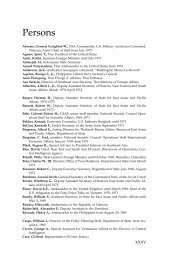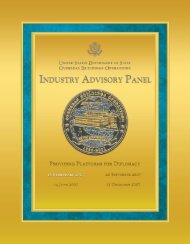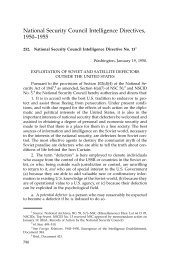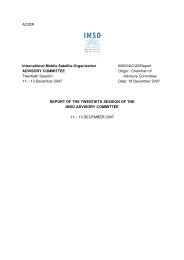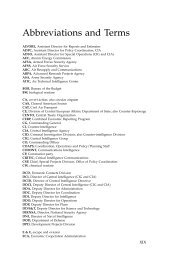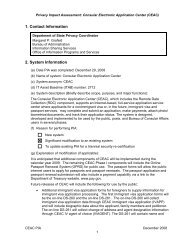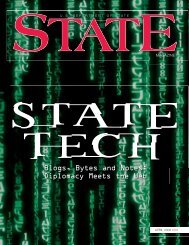Greece - US Department of State
Greece - US Department of State
Greece - US Department of State
Create successful ePaper yourself
Turn your PDF publications into a flip-book with our unique Google optimized e-Paper software.
792 Foreign Relations, 1969–1976, Volume XXIX<br />
27. Over time, the junta will probably seek to increase at least the<br />
appearance <strong>of</strong> greater popular support. To this end it might ordain the<br />
establishment <strong>of</strong> one or more political parties, perhaps including a putative<br />
opposition one. It may permit the election <strong>of</strong> a new parliament.<br />
Such measures would <strong>of</strong>fer many advantages; Papadopoulos could<br />
hope, in so doing, actually to broaden his base <strong>of</strong> public backing at<br />
home and to spike the guns <strong>of</strong> his critics abroad.<br />
28. But such measures would more likely be tokens <strong>of</strong> the government’s<br />
good intentions than an actual turnover <strong>of</strong> power to a civilian<br />
government. Thus any new political parties would probably be<br />
tame affairs, manned by politicians pledged to the continuation <strong>of</strong> the<br />
“revolution” and to the primacy <strong>of</strong> the colonels. Similarly a new parliament<br />
would probably be designed to provide the regime with little<br />
more than a constitutional facade.<br />
29. Another kind <strong>of</strong> move—less likely—would be to seek some<br />
kind <strong>of</strong> rapprochement with exiled King Constantine, even allowing<br />
him to return. The King is, to the regime, a known and distrusted quantity.<br />
The junta seized power without his prior knowledge and against<br />
his wishes. After several months <strong>of</strong> wary coexistence, the King (who<br />
had formerly played a very active political role in his own right and<br />
who would probably seek to do so again) tried to throw them out; his<br />
counter-coup failed and he was exiled, though <strong>Greece</strong> <strong>of</strong>ficially remains<br />
a monarchy. Whatever Constantine were to promise as a price for his<br />
return, in the junta’s mind there would always be a danger that he<br />
would begin demanding a truly free press or elections, or start soliciting<br />
support from civilians and military men <strong>of</strong> prominence. This would<br />
pose a real threat, a fact which makes his return at the regime’s behest<br />
doubtful. 4<br />
30. In any case, the leaders will probably be guided in their decisions<br />
principally by concern for their continued tenure in <strong>of</strong>fice. While<br />
taking any number <strong>of</strong> measures to enhance their public image or to<br />
pursue specific political or economic policies, they will be highly unlikely,<br />
on their own, to do anything which they thought could lead to<br />
their loss <strong>of</strong> ultimate authority over Greek political life.<br />
4 The 1968 constitution provides for the monarch’s return after elections are held.<br />
A possible resolution <strong>of</strong> the problem would be the deposition <strong>of</strong> Constantine and the<br />
recognition <strong>of</strong> his young son as King. [Footnote in the original.]


